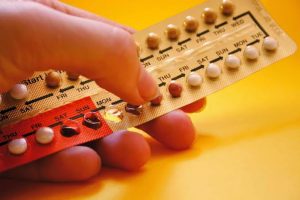
Identifying the actual reason why you’re not losing weight is the beginning of a successful weight loss/health journey
Weight loss might be the major complaint, but you might be at risk of cardiovascular diseases and diabetes if not placed on a healthy diet.
With this article, we’ll be looking at one major reason why you might not just be losing weight accordingly.
THE THYROID GLANDS
The thyroid glands are located just in front of your neck. They produce hormones that help regulate metabolic rate controlling the heart, muscles, and other important parts.
The thyroids get their information from the pituitary gland which helps to stimulate their hormone release to help in bodily functions
The thyroid glands could either overproduce hormones (hyperthyroidism) or it could underproduce (hypothyroidism). When it does either of these, it affects your weight entirely.
WHAT HAPPENS WHEN THE THYROID GLANDS MALFUNCTION
Hypothyroidism occurs when the thyroid glands are under-producing hormones. This comes with symptoms such as weight gain (finding it difficult to lose weight), slower heart rate, more frequent and stronger heart rate, dry skin, and hair.
With hypothyroidism, the way your body processes energy is quite slow, making it hard for you to put off extra weight. If not supervised, you might just get frustrated on the long run, see how your dietitian can help you out:
HOW YOUR DIETITIAN AN HELP YOU
– Your dietitians duty is to help you plan out adequate number of calories and merge it with exercises that would help enhance your metabolism
– Your dietitian aims to make sure you have the important nutrients that are depleted in you, especially if you have hypothyroidism. Nutrients like iodine, vitamin D, selenium, and B12 are mostly affected when the thyroids malfunction
– Also, he/she makes sure every goitrogen ( substances that interfere with how thyroid hormones are utilized) present in your diet is totally removed. Goitrogens include soy, cabbage, broccoli, and cauliflower.
Furthermore, you can help support your thyroids by incorporating these into your diet
Nutrients to support thyroids:
Iodine: fish, cheese, milk, seaweed
Sodium: iodized salt
Potassium kiwi, potatoes, banana
Selenium: fish,
Tyrosine: eggs, plan cut beef
Zinc- liver, oyster
MEDICAL TREATMENT
Diet alone won’t help manage your underactive thyroids, because without medical treatment, dietary management won’t be effective
So, your doctor would most likely place you on an oral synthetic thyroid hormone (levothytoxine) that would help replace the amount of hormone your body is no longer producing.
The absorption of this might be tampered with if you take supplements that contain iron, or calcium, and even some antacids that contain aluminum hydroxide.
The thyroid gland is the major support system that determines how much energy is used up or stored in your body. When it malfunctions, it totally can affect your weight. It is important to speak to your doctor when you notice struggles with losing weight for a correct diagnosis.
Sources:
1.https://www.todaysdietitian.com/newarchives/070112p40.shtml
2. Biondi B, Klein I. Hypothyroidism as a risk factor for cardiovascular disease. Endocrine. 2004;24(1):1-13
3. Dean S. Medical nutrition therapy for thyroid and related disorders. In: Mahan KL, Escott-Stump S, eds. Krause’s Food, Nutrition, & Diet Therapy. 13th ed. Philadelphia, PA: Saunders; 2008: 711-724
4. Rayman MP. Selenium and human health. Lancet. 2012;379(9822):1256-1268
5. Messina M, Redmond G. Effects of soy protein and soybean isoflavones on thyroid function in healthy adults and hypothyroid patients: a review of the relevant literature. Thyroid. 2006;16(3):249-258





 Generally, one major factor considered to affect fertility is age. As you grow older, your organs, hormones and system seem to deteriorate.
Generally, one major factor considered to affect fertility is age. As you grow older, your organs, hormones and system seem to deteriorate.